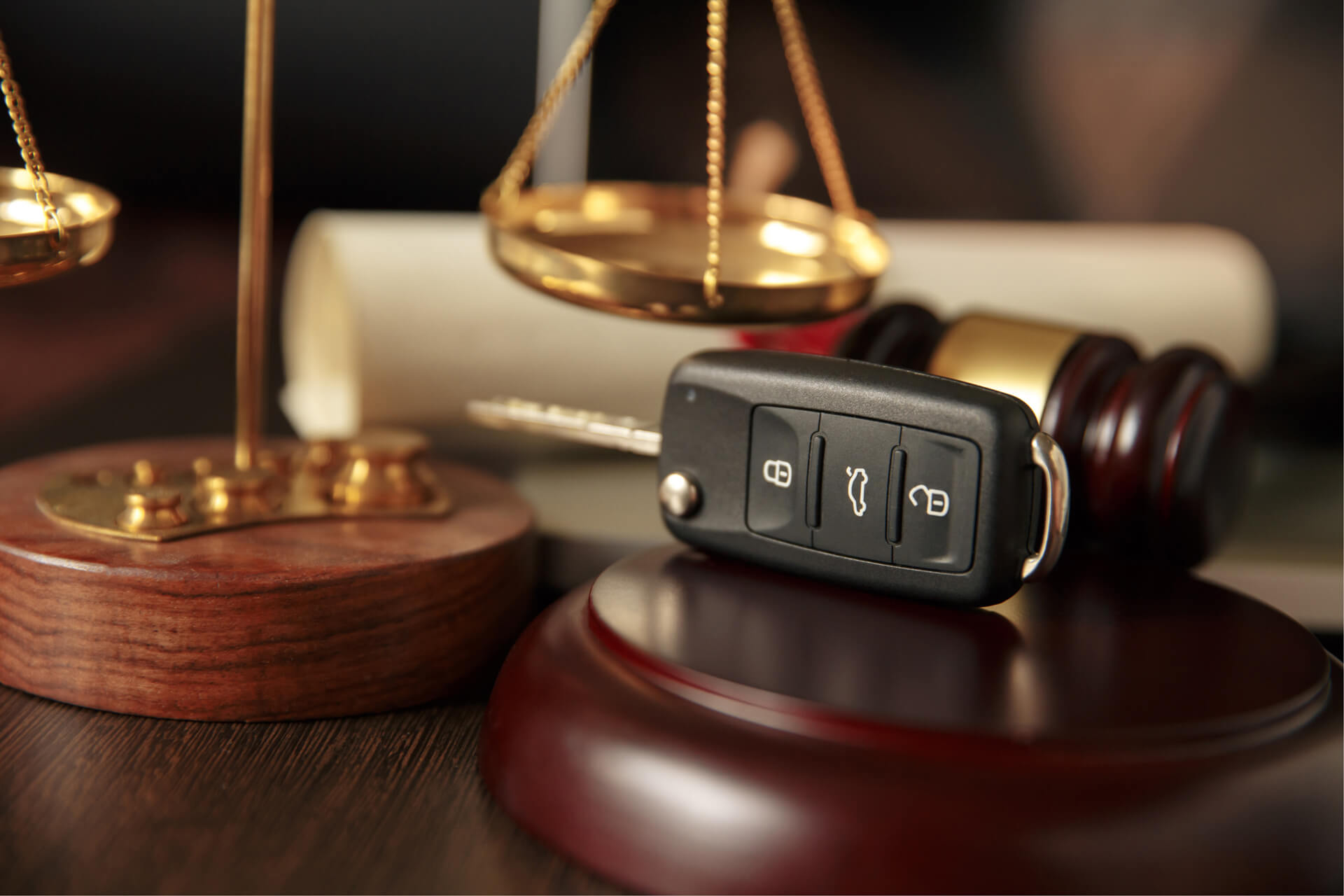A DUI conviction can have far-reaching consequences, one of the most significant being its impact on your car insurance rates. If you’re wondering, “How long does a DUI affect insurance?”, the answer can vary depending on your insurer and state laws, but it typically affects insurance rates for 3 to 10 years. Understanding the long-term impact of a DUI on your premiums—and exploring steps to mitigate these effects—is crucial for anyone facing a DUI charge. Working with an experienced attorney can help minimize the consequences and get you back on track.

What constitutes a DUI?
A DUI conviction is defined as operating a vehicle with a Blood Alcohol Concentration (BAC) above the legal limit, which is 0.08% in most states. However, some states enforce stricter limits for commercial drivers and drivers under 21. The legal implications of a DUI can be severe, including fines, driver’s license suspension, and even jail time. Beyond the legal penalties, a DUI can also significantly impact your auto insurance rates. Car insurance companies view a DUI as a high-risk factor, often leading insurance providers to increase premiums significantly. The question, “How does a DUI affect your insurance?” is critical, as the financial burden can persist for years after the conviction.
BAC Limits: While the standard BAC limit for most drivers is 0.08%, some states have stricter limits for certain categories of drivers. For example, commercial drivers often face a lower BAC limit of 0.04%. This is due to the increased responsibility and potential danger of operating large vehicles. Additionally, many states enforce zero-tolerance laws for drivers under the age of 21, meaning any detectable amount of alcohol can result in a DUI charge. These zero-tolerance laws are designed to discourage underage drinking and driving by imposing strict penalties for any level of alcohol detected in the bloodstream.
Types of Substances: While alcohol is the most commonly associated substance with DUIs, it’s important to note that driving under the influence of drugs—whether prescription, over-the-counter, or illegal—can also result in a DUI charge. Many states have specific laws regarding drug-impaired driving, and the penalties can be just as severe as those for alcohol-related DUIs. For instance, driving under the influence of marijuana, even in states where it is legal, can lead to a DUI if it impairs your ability to drive safely.
Legal Implications of DUIs: The legal consequences of a DUI can be severe and long-lasting. Penalties often include hefty fines, mandatory alcohol education programs, community service, probation, and even jail time. The severity of the penalties typically depends on factors such as the driver’s BAC level, whether it is a first-time or repeat offense, and if any aggravating circumstances were present (e.g., causing an accident or having a minor in the vehicle). In addition to these penalties, a DUI conviction can lead to a criminal record, which can have further implications for employment, housing, and other aspects of life.
Impact on Driving Privileges: One of the immediate consequences of a DUI is the potential suspension or revocation of your driver’s license. The duration of the suspension can vary based on the state and the specifics of the offense. In some cases, drivers may be eligible for a restricted or hardship license, which allows limited driving privileges for essential activities such as work, school, or medical appointments. Obtaining such a license often requires meeting certain conditions, such as installing an ignition interlock device (IID) in your vehicle.
Insurance Ramifications: Beyond the legal penalties, a DUI can also have a significant impact on your car insurance premiums. Insurance companies view DUI offenders as high-risk drivers, which often leads to substantial increases in premiums. In some cases, insurers may even cancel your policy altogether. The duration and extent of these increases can vary, but they typically last for several years and can make finding affordable insurance coverage challenging.

The Immediate Effects of a DUI on Insurance
When you are convicted of a DUI, your insurance company will likely be notified, either through the DMV or when you renew your policy. Insurers react to a DUI in various ways, but the immediate effects often include:
Policy Cancellation: Some insurers may cancel your policy outright, especially if you have other risk factors or previous violations. This can leave you scrambling to find new coverage, often at a much higher rate, as you will be considered a high-risk driver. Policy cancellation can be particularly challenging if you rely on your vehicle for daily activities, work, or family responsibilities.
Non-Renewal: If your policy isn’t canceled immediately, you may find that your insurer chooses not to renew it when the term ends. Non-renewal can be just as disruptive as cancellation, forcing you to seek new insurance under unfavorable conditions. Insurers have the right to assess your risk profile at the end of each term and decide whether to continue offering you coverage.
Premium Increases: If your policy is not canceled, you can expect a significant increase in your premiums. The exact amount varies by insurer but can be as much as 100% or more. This increase reflects your higher risk as a driver with a DUI conviction. Higher premiums can strain your budget and make it more difficult to afford other necessities. In some cases, you may also be required to file an SR-22 form, a certificate of financial responsibility that proves you have the minimum required insurance coverage. Filing an SR-22 can also result in additional fees and further complicate your insurance situation.
The Long-term Effects of a DUI on Your Insurance Premiums
The long-term DUI effects on car insurance premiums can last for several years. Here are some key points to consider:
Duration on Driving Record: A DUI typically stays on your driving record for 3 to 10 years, depending on the state. During this time, insurers will consider you a high-risk driver. This extended period can significantly impact your ability to secure affordable insurance rates. In states like California, a DUI can remain on your record for up to 10 years, while in others, it may be shorter.
Average Duration of Premium Increases: On average, you can expect your insurance premiums to remain elevated for at least 3 to 5 years. Some states may have longer durations. During this period, your premiums may double or even triple, depending on the severity of the offense and your overall driving history. Insurers use this time to mitigate the perceived risk you pose as a driver.
Variations by State and Insurer: The impact of a DUI on your insurance premiums can vary significantly by state and insurer. Some states have laws that limit how long an insurer can charge you higher premiums for a DUI, while others do not. For instance, in states with more lenient regulations, you might find that your premiums return to normal sooner. Conversely, in states with stricter laws, you could face prolonged financial penalties. Additionally, each insurance company has its underwriting guidelines and risk assessment criteria, which means the increase in premiums can vary from one insurer to another. Some insurers specialize in high-risk policies and may offer slightly better rates, while others may impose more severe penalties.

Impact on Policy Options: After a DUI, you may find that your options for insurance coverage are limited. Some insurers may refuse to cover you altogether, while others may only offer policies with higher deductibles and lower coverage limits. This can make it challenging to find a policy that meets your needs and budget.
SR-22 Requirement: In many states, a DUI conviction will require you to file an SR-22 form, which is a certificate of financial responsibility. This form is filed by your insurance company and serves as proof that you carry the minimum required insurance coverage. The SR-22 requirement can last for several years and often comes with additional fees, further increasing the overall cost of your insurance.
Reputation and Trust: A DUI can also affect your reputation and the trust your insurer places in you. This can lead to more stringent terms and conditions on your policy, such as mandatory alcohol education programs or regular check-ins with your insurance agent. These additional requirements add to the inconvenience and cost of maintaining your insurance coverage.
Potential for Future Rate Increases: Even after the initial period of elevated premiums, a DUI can have lingering effects on your insurance rates. If you are involved in another traffic violation or accident, insurers may be more likely to increase your rates again, citing your prior DUI as a factor in their decision. This means that the financial impact of a DUI can extend well beyond the initial period of increased premiums.
How to Mitigate Increased Premiums
While a DUI will almost certainly lead to higher insurance premiums, there are steps you can take to mitigate these increases:
- Legal Assistance: An experienced Virginia DUI attorney can help you navigate the DUI laws and potentially reduce the severity of your charges. This can impact your ability to secure insurance after a DUI at more reasonable rates. The Law Offices of Michael Pignone specialize in DUI defense and can provide the expert legal support you need.
- Defensive Driving Courses: Completing a defensive driving course can sometimes help reduce your insurance premiums. In many cases, state regulations may require DUI offenders to complete such courses as part of their sentencing.
- High-Risk Insurance Options: If your current insurer cancels your policy, you may need to explore high-risk insurance policies. These policies are specifically designed for drivers convicted of DUIs or other violations but come with higher premiums and may require higher coverage limits.
- Fight Insurance Rate Hikes: Work proactively with major insurance providers that offer programs or discounts for rehabilitative actions, such as maintaining a clean driving record after your DUI. Comparing rates among insurers can also help you find more affordable coverage.
Taking these steps can help mitigate the long-term financial burden associated with a DUI and improve your chances of regaining financial stability.
If You’ve Been Convicted of a DUI, Don’t Wait—Contact Our Law Firm
A DUI can have long-lasting effects on your car insurance premiums, but understanding these impacts and taking proactive steps can help mitigate the financial burden. If you are facing a DUI charge, the Law Offices of Michael Pignone can provide the legal assistance you need to navigate this challenging time. Contact us today at 571-450-8693 to discuss your case and explore your options for minimizing the impact on your premiums insurance.

